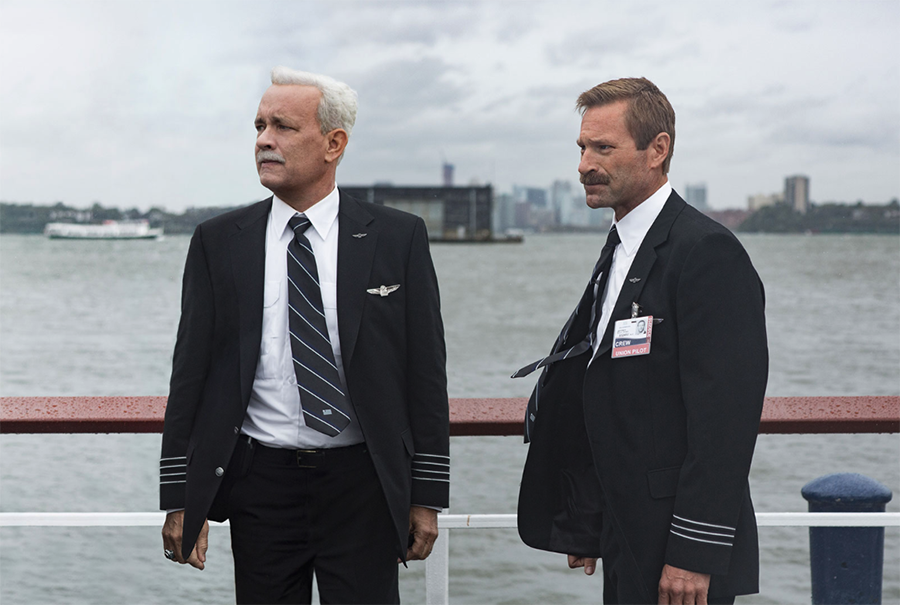“Sully” soars overall despite critical faults
Tom Hanks shines as lead
October 11, 2016
“Sully” provides an enjoyable and compelling recount of a real life event. The film’s stars shine in their portrayals of American heroes. Despite the overall captivating aesthetic of the movie, irrelevant subplots and a forgettable soundtrack detracts from the overall focus of the story.
In “Sully,” the film follows pilot Chesley “Sully” Sullenberger, played by Tom Hanks, in the emergency airplane landing in the Hudson River, based on the true event. In the wake of the crash, his actions are scrutinized by the National Transportation Safety Board, making the protagonist relive the event and defend his decision.
Director Clint Eastwood delivers an entertaining film. Eastwood’s directing style helps establish the drama in every scene through the use of camera angles and panning shots. He displays a great command of setting the scene, using different perspectives to show diversity in point of view. A great sense of understanding is shown in action scenes, displaying both the physical exploit and the emotional effect on the characters in the same frame. The flashbacks and nightmares within the linear plot presents the audience with a convoluted and blurred sense of timing that matches the whirlwind the main characters face in the wake of the emergency landing.
The plot sets its protagonist against internal and external conflict in the wake of his water landing. After successfully saving every passenger and crew member on board after a bird strike damages both engines, Sully must face an investigation questioning whether his decision was the best option. Sully also must face his fears of the traumatic event and the questioning of his own judgement, while dealing with the unwanted attention of the press and the public.
Tom Hanks carries the movie as Sully, impressing in the lead role. Hanks portrays Sully as a reluctant hero, thrust into the public spotlight while facing scrutiny from investigators questioning his actions. Aaron Eckhart plays Sully’s co-pilot Jeff Skiles, a loyal friend and partner who understands the nightmares and pressure Sully faces. Eckhart shines in the supporting role, providing passion and nuanced comedic timing to the serious setting. Mike O’Malley plays Charles Porter, the head of the National Transportation Safety Board investigating the emergency landing and the antagonist of the film. O’Malley, along with the rest of the board, act as close minded individuals bent on prosecuting the pilots. O’Malley’s performance is overblown and forced, exaggerating the intentions of the character to derail Sully’s career.
The film’s faults lie in unnecessary subplots and an unnoticeable soundtrack. The plot spends extra time to show snippets of passengers prior to boarding the plane. The several characters shown are inserted to demonstrate the stakes at hand for Sully in the emergency. These characters are barely revisited following their introductions, and are meaningless in the overall scope of the film.
The film also introduces a sub-plot in Sully’s financial troubles, compounding with the unwanted media attention and the frustrating investigation in his stressful situation. The financial troubles are touched upon briefly at several points within the film, but this plot thread is not revisited afterwards and does not have a real effect on the main story. The film’s soundtrack is relatively nonexistent, without any standout scores to enhance the story. The soundtrack falls to the wayside in the focus on emphasizing the dramatic tension through camera angles instead of background music.
“Sully” finds its success through Hanks’ leading charisma and with Eastwood at the helm. Despite several plot holes and an overblown antagonist, the film does the real water landing justice in its adaptation of a magnificent, real life story. “Sully” remains an entertaining film even with its flaws.
Rating: 3/5




